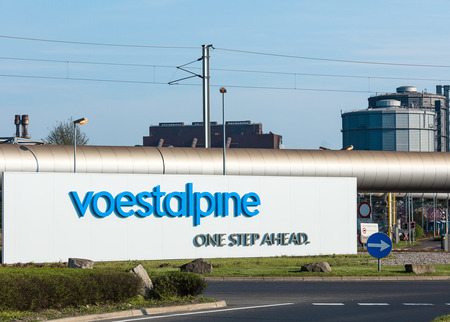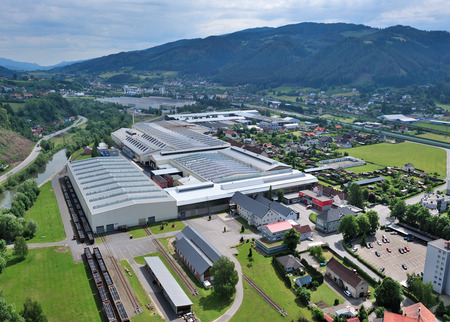- Unscheduled write offs at voestalpine Texas and voestalpine Tubulars (around EUR 200 million) largely necessary due to global market changes accentuated by COVID-19 pandemic
- Operating result (EBITDA) not affected by write offs, negative impact on EBIT in BY 2020/21
- Outlook for EBITDA in BY 2020/21 at between EUR 800 million and EUR 1 billion more optimistic than previous forecast
Today the Management Board of voestalpine AG announced the need for a non-recurring write off at voestalpine Texas during the current business year 2020/21 due to impairment of assets. The reevaluation is primarily a consequence of the COVID-19 pandemic and necessary adjustments to this company’s expected mid-term results. The direct reduction plant which went into full scale operation in 2017 produces around two million tons of sponge iron (HBI) annually, a sophisticated pre-material used in steel production by customers around the world. Since 2019, the HBI plant has been particularly severely affected by the high prices for iron ore, and low prices for scrap. The global iron ore price is primarily influenced by growing demand from China, while in the rest of the world the scrap price remains low. This decoupling is leading to price ratios for iron ore and scrap of a scale hitherto unknown, which in turn is impacting HBI demand and prices. Unscheduled write offs for the HBI plant have already been made, in the BY 2019/20.

We expect the framework conditions to remain difficult over the next few years, and therefore we must once again adjust our future expectations for our plant in Texas. The direct reduction plant remains an important strategic element in view of our plans to decarbonize our steel production.
Company write offs of a smaller scale will also be made at voestalpine Tubulars. The voestalpine production site in Kindberg, Austria, is particularly affected by the punitive tariffs imposed on European steel and aluminum products by the US administration in 2018 (“Section 232”). As protectionist US trade policy is expected to result in an indefinite period of trade barriers, a further write off is planned in addition to the unscheduled write off made in the BY 2019/20. voestalpine Tubulars is specialized in the production of highly resilient seamless tubes for the global oil and gas industry and exports over half of its output to the USA.
More optimistic EBITDA forecast
The voestalpine operating result (EBITDA) for the current business year (2020/21) appears to be developing positively. Due to current improvements in the macroeconomic environment, assuming no further restrictions such as COVID-19 lockdowns ordered by the government and the uncertainty they generate, the Management Board currently expects an EBITDA of between EUR 800 million to EUR 1 billion. In June the forecast EBITDA was between EUR 600 million and EUR 1 billion.
“We have succeeded in adapting to this completely new situation very quickly over the past few months. Our focus remains on measures including consistently managing costs and working capital as well as generating cashflow in order to stabilize results. Irrespective of these measures, over the next few months the situation for the entire voestalpine Group remains highly uncertain,” says Eibensteiner.
The voestalpine Group
In its business segments, voestalpine is a globally leading steel and technology group with a unique combination of materials and processing expertise. voestalpine, which operates globally, has around 500 Group companies and locations in more than 50 countries on all five continents. It has been listed on the Vienna Stock Exchange since 1995. With its top-quality products and system solutions, it is a leading partner to the automotive and consumer goods industries as well as the aerospace and oil & gas industries, and is also the world market leader in railway systems, tool steel, and special sections. voestalpine is fully committed to the global climate goals and is working intensively to develop technologies which will allow it to decarbonize and reduce its CO2 emissions over the long term. In the business year 2019/20, the Group generated revenue of EUR 12.7 billion, with an operating result (EBITDA) of EUR 1.2 billion; it had about 49,000 employees worldwide.

voestalpine.jpg)

